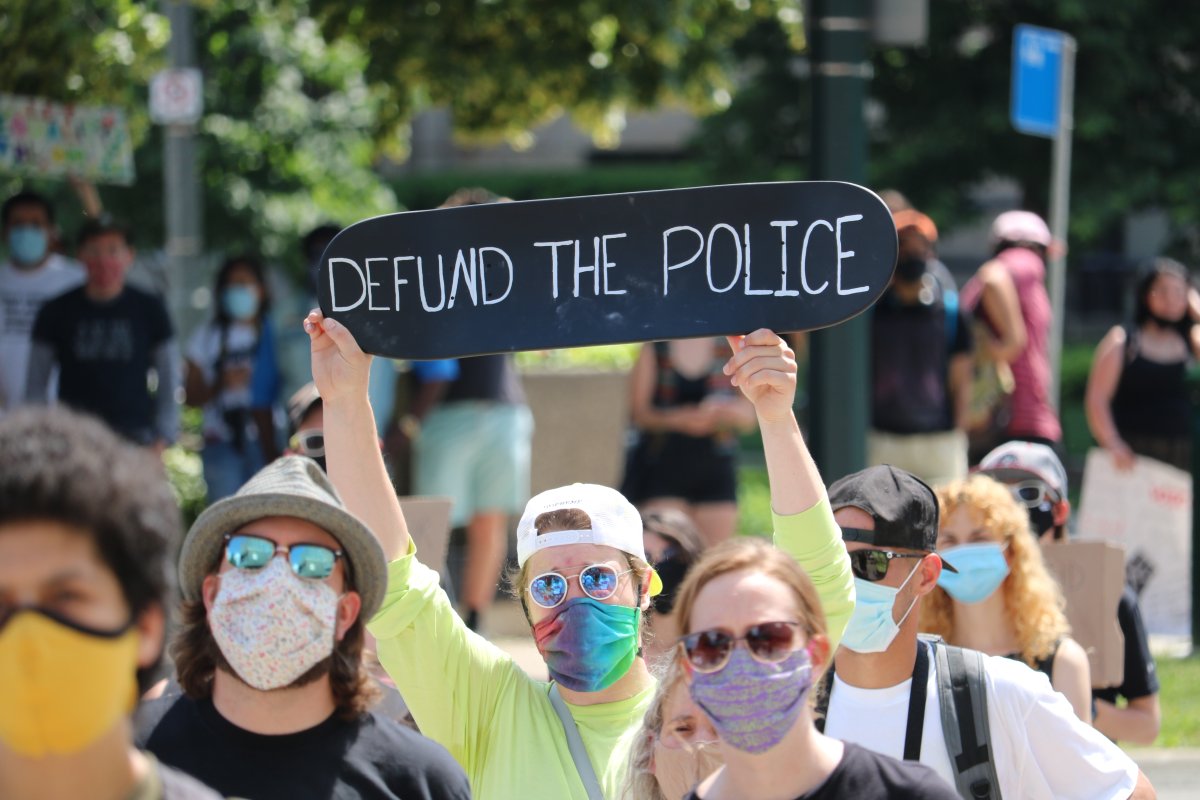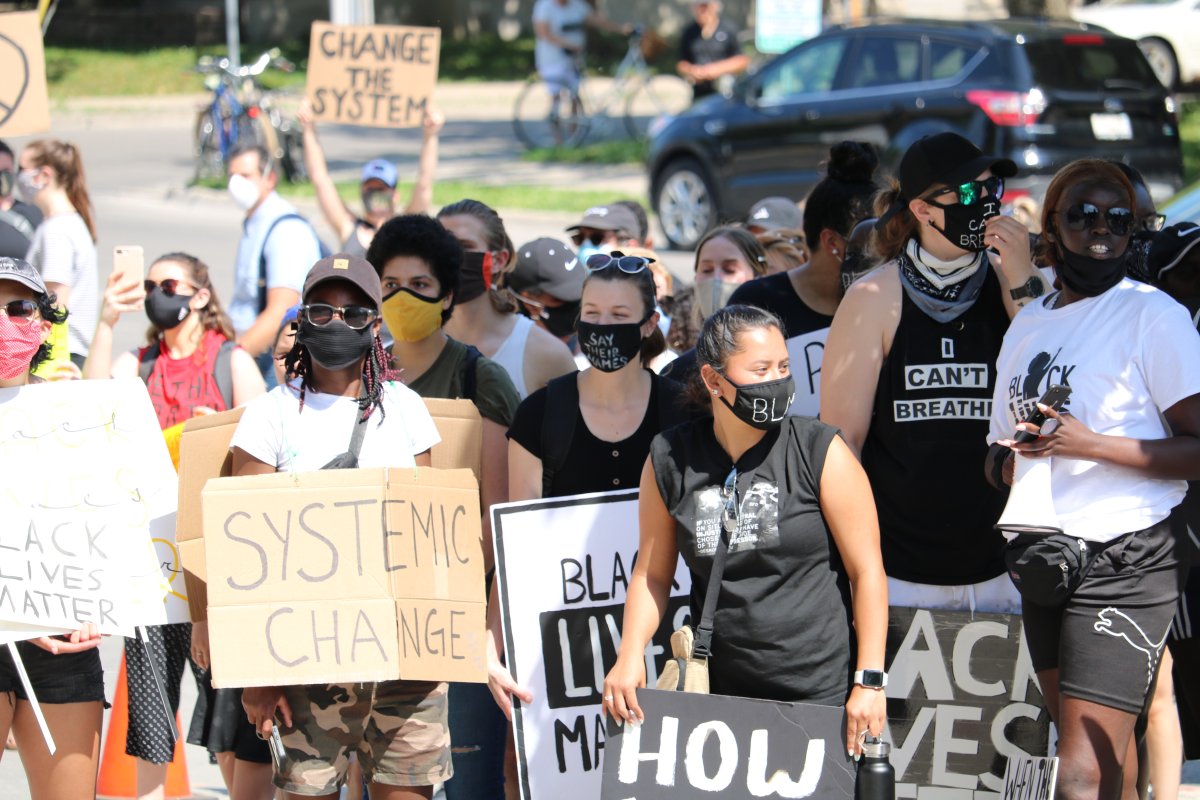“Enough is enough” and “no justice, no peace” were the words echoed at the steps of City Hall at the Black Lives Matter rally in London, Ont., on Saturday.

There were around 1,000 people outside London City Hall on Saturday afternoon to call for change and address the systematic racism within police departments towards Black and Indigenous people.
This rally comes two weeks after the first Black Lives Matter rally in Victoria Park that saw crowds estimated at over 10,000 people.
Saturday’s rally outlined the group’s demands of defunding the police and removing school resource officers from schools.
“Defunding the police means taking the funds used to over-police Black and Indigenous communities and to heavily police homeless people and relocating them into infrastructure to boost the Black and Indigenous communities,” said Alexandra Kane, spokesperson for Black Lives Matter London.
Kane said that by defunding, they don’t mean dismantle or abolish the police service, but they would like to see unnecessary funds repurposed into health care, mental health services and education.
https://platform.twitter.com/widgets.js
Another key issue for Black Lives Matter London is removing school resource officers from London schools.
“Kids — Black kids especially — develop a fear of the police from an early age because they see the heavy policing in their neighbourhood,” Kane said.
On Thursday, the London Police Services Board met for their monthly meeting where Dr. Javeed Sukhera, board chair, presented a letter of 12 proposed actions for the board to address racism with policing.
The letter called on the London Police Services to find areas where they could cut funding that could be distributed to other city services more in need and to consult with community members and school boards about the role of school resource officers.
Reacting to the letter, Kane said it was a start but said they wouldn’t stop protesting until they see real change.
“Action is what we are looking for.”
“We have had these conversations since the abolition of slavery,” she said. “Yes, they continue to speak out and talk about it, but so far, that’s all they have done.
“We will not be silent until these words are met with actions instead of empty promises,” said Black Lives Matter organizer Keira Roberts. Roberts is one of the five teen girls who initially started the Black Lives Matter rallies in London.
“I am tired of asking nicely, and I am beyond angry that in order for changes to be made, the world has to watch Black people be murdered in cold blood just to speak up to show and care,” Roberts told the crowd on Saturday.
https://platform.twitter.com/widgets.js
When Looking at removing racism from policing, equal representation in the justice system plays a key factor, said Lera Nwineh, Western Law student and Black Lives Matter volunteer.
Nwineh spoke at the rally about what it’s like being one of only two Black students currently enrolled in the program.
Nwineh, who moved to Canada 10 years ago when he was 16, said he did not understand what it meant to be Black when he first moved because his race had not been an issue until he moved to Canada.
Going into his second year, Nwineh said he is trying to work with the administration to create more diversity in Western Law, something he said the administration now seems more open to talking about in the last few months.
“I am working on figuring out how we can get more Black men and women into positions of power in the legal system because the lawyers and judges all get resources from the law schools,” Nwineh said. “If the law schools aren’t making continuous effort to improve diversity, then it means the legal field is not making a conscious effort to understand diversity.”
- Posters promoting ‘Steal From Loblaws Day’ are circulating. How did we get here?
- Canadian food banks are on the brink: ‘This is not a sustainable situation’
- Video shows Ontario police sharing Trudeau’s location with protester, investigation launched
- Solar eclipse eye damage: More than 160 cases reported in Ontario, Quebec











Comments